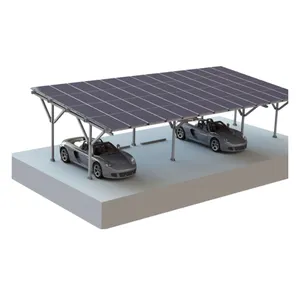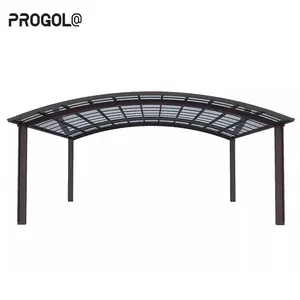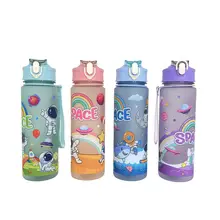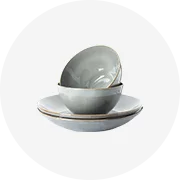Mechanical Carport Overview
Mechanical carports are innovative solutions for vehicle protection, designed to shield cars from environmental elements. These structures are pivotal in areas where traditional garages are impractical or unavailable. Mechanical carports are characterized by their robust construction and mechanical features that can offer enhanced usability compared to static models.
Design and Materials
The design of a mechanical carport is a blend of functionality and aesthetics. Materials used in these carports include powder-coated steel for durability and resistance to corrosion. The roofing materials often consist of polycarbonate panels or PVC coatings, which provide protection from UV rays and harsh weather conditions. The color palette ranges from classic whites and grays to more vibrant blues, allowing for customization to match different settings, such as hotels or supermarkets.
Types and Features
There are various types of mechanical carports available, each with unique features. Some are equipped with solar mounting systems, making them a sustainable option for energy generation. Others include automated elements that allow for easy retraction or expansion of the structure. The treatment of the materials also varies, with options like heat-treated for enhanced strength or chemically treated for additional resistance to wear and tear.
Applications and Advantages
Mechanical carports are versatile and can be installed in diverse environments, from residential complexes to commercial venues like restaurants. The mechanical aspect of these carports provides a significant advantage in terms of space optimization and ease of use. Their adaptability makes them suitable for various applications, offering protection not only for cars but also for outdoor spaces and as auxiliary shelters.
Selection Considerations
When selecting a mechanical carport, considerations such as the size, load capacity, and compatibility with the intended environment are crucial. It is important to assess the mechanical integrity and the quality of materials to ensure that the carport meets the specific needs of the user without compromising on safety and durability.
Environmental Impact
The environmental impact of mechanical carports is an important consideration. Many are designed with eco-friendly materials and can incorporate features like rainwater collection systems or solar panels, contributing to a reduced carbon footprint and promoting sustainable practices.








































 浙公网安备 33010002000092号
浙公网安备 33010002000092号 浙B2-20120091-4
浙B2-20120091-4